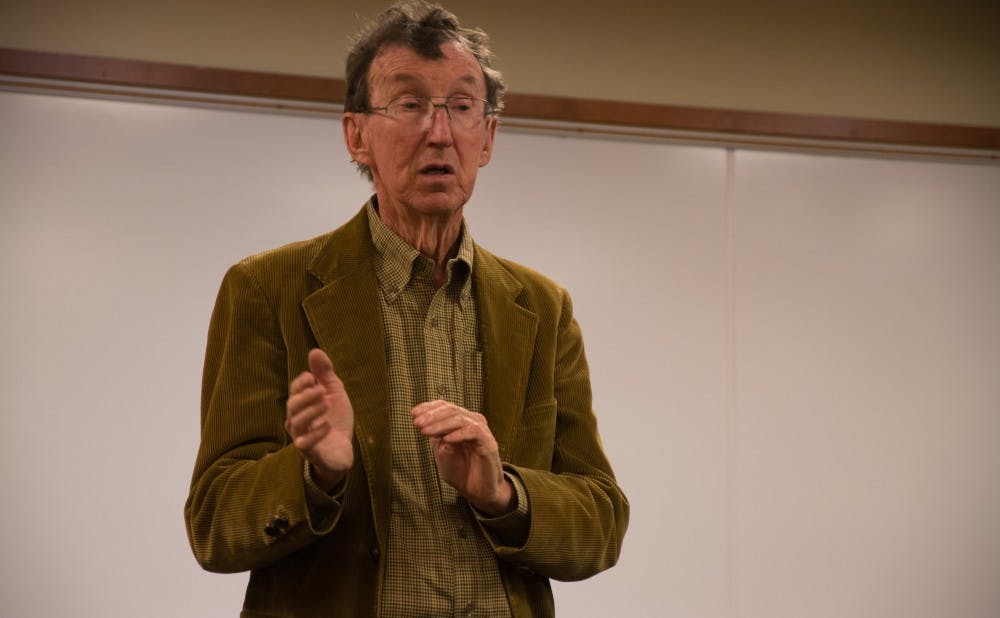The Advisory Committee on Investment Responsibility held an open forum Wednesday to discuss transparency procedures regarding the Duke endowment’s holdings and allocations.
ACIR makes recommendations to President Richard Brodhead on socially responsible investments for the University. The committee reviews the endowment yearly and advises Brodhead on the portion of the endowment that “Duke has direct control over,” said James Cox, Brainerd Currie professor of law and ACIR chair.
Overseen by DUMAC, Inc.—the professional organization that manages the University's investments—the endowment was valued at $6.8 billion in the fiscal year that ended this June.
“[ACIR] sends a message to DUMAC members about the issues that matter in the Duke community,” Cox said.
The committee responds to student proposals but also “surveys the landscape” for other relevant issues, he explained.
In 2014, the student organization Divest Duke urged the University to remove its investments in the top-200 publicly-traded companies that hold a majority of the world's coal, oil and natural gas resources. However, ACIR unanimously recommended against divestment in a letter to Brodhead.
Duke did divest from South Africa in 1986 in response to apartheid and from Sudan in 2008 in response to its government's human rights violations.
When asked by an audience member about the transparency of the endowment, Cox noted that Duke’s procedures for confidentiality reflect that of many of its peer institutions, which do not recommend “any transparency with respect to [their] endowment holdings.”
All reports are made public on the ACIR website, but information that is believed to be “sensitive” is sometimes redacted from the reports. Cox said that a certain level of confidentiality surrounding the endowment is unavoidable.
“This is not a buyer’s market, this is a seller’s market,” he said, noting how a “lack of transparency” is embedded in markets around the world.
Last year, student group DukeOpen requested greater endowment transparency, but ACIR cautioned against the “broad disclosure of the endowment’s investment holdings” due to the potential adverse effects of “reducing competitive advantages and jeopardizing existing relations with advisors.”
However, Cox urged members of the Duke community to get involved with the ACIR regarding transparency concerns or any social responsibility issues.
“[We are] eager to hear from the Duke community about issues that are of great concern,” he said.
Cox noted the low attendance at the ACIR forum—less than 10 attendees—as evidence of the apathy on campus post-election.
“Discussions of social issues [seem] fanciful,” he said, adding that students at the Duke Law School resemble the “walking dead.”
Sophomore Jackson Dellinger, who attended the open forum, echoed Cox’s sentiment, noting dissatisfaction with the low attendance. He said that students should be more aware of the “gray area” surrounding around the endowment.
“[ACIR has] the greatest potential for impact,” Dellinger said.
Get The Chronicle straight to your inbox
Signup for our weekly newsletter. Cancel at any time.

